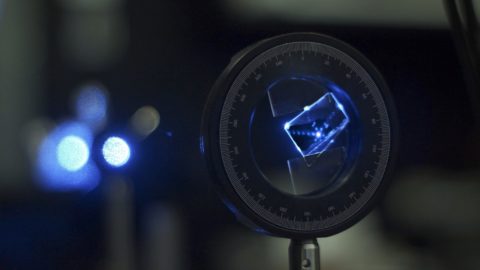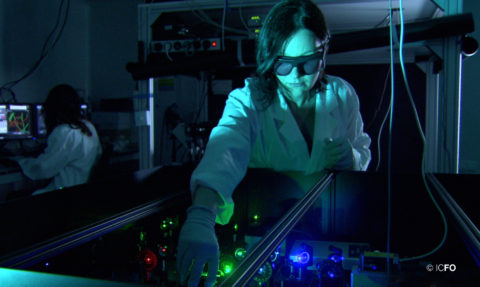Program Overview
The Europhotonics Master in Photonics covers one of the most expanding fields in physics and material sciences, dealing with Photonics Engineering, Biomedical Imaging, Quantum Optics, Lasers, Astronomy, Nanophotonics, Biophotonics and for numerous applications in Microelectronics, Aeronautics, Automotive industry…
This master aims at giving an extensive teaching program from fundamentals to advanced research topics in Photonics and its interdisciplinary applications. Master students benefiting from this program will be able to work on today’s new challenges in their academic or applied research carriers: understanding and control matter and optical phenomena at the ultimate nanometric scale, providing new imaging tools for the most complex biological processes from cells and tissues to clinical applications, bringing original tools in line with future optical devices.

M1 Program (1st Year)
Semester 1 – Fundamentals in Optics & Photonics
September – February/March
Marseille
Spring School
March
Different location each year
Semester 2 – Core subjects
February/March – September
Marseille – Karlsruhe
M2 Program (2nd Year)
Semester 3 – Specialization
September/October – March
Marseille- Karlsruhe – Barcelona – Tampere – Vilnius
Spring School
March
Different location each year
Semester 4 – Master Thesis
March – September
Research or industries labs

Based on this scheme, the students will be able to lead studies in the field of photonics :
- they will have the capacity of analysing a scientific problem and presenting possible solutions in optics and photonics
- they will have the necessary scientific culture to provide answers in interdisciplinary topics linking physics and biology
- they will be able to present scientific results and write scientific proposals
- they will be able to cooperate with industry on applied projects
- they will know the companies’ way of thinking, the problems companies using photonic technologies are facing, and what companies expect from photonic master-graduate persons
- they will know how challenging (and exciting) is research work
Funded by the European Union. Views and opinions expressed are however those of the author(s) only and do not necessarily reflect those of the European Union or the European Education and Culture Executive Agency (EACEA). Neither the European Union nor EACEA can be held responsible for them.

